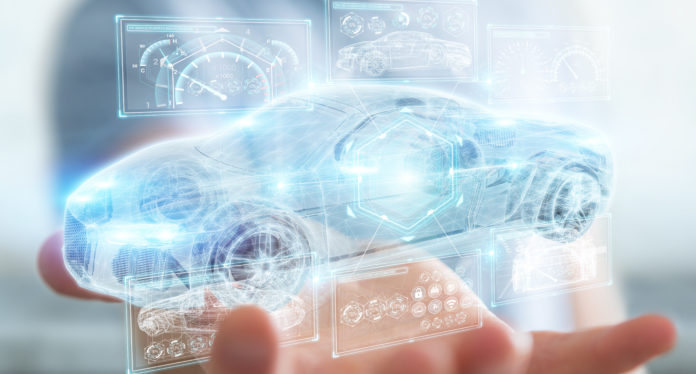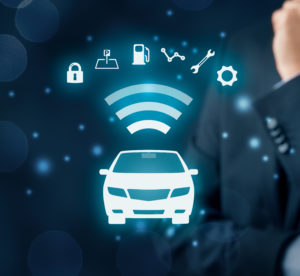
By Bruno Lucarelli
Connected cars aren’t just the future; they’re the present. Vehicles equipped with internet access are constantly sharing data, either between devices or between car and any number of companies with access to the information they’re providing. Of course, just like anything else, data has become a commodity – and a valuable asset to dealerships.
We’ve been seeing more programs from vendors utilizing connected car data to leverage dealer profits in the last few years. For example, fleet management companies have already utilized connected vehicle information to their advantage, including GPS tracking, repair alerts and other useful features, but how many of these translate into the consumer space and more importantly, dealer profits?
According to a study by Statista, over 83 million connected cars will ship in 2020. Layer in the adoption of 5G phone networks and dealerships can bet on a fresh torrent of information. Highline vehicles will see a greater overall penetration and faster ramp up of related services. The data available will be a treasure trove of information about location and driving habits, offering a path to customization never before dreamed of by marketers of consumer vehicles.
The Focus On Service
Before we jump into what’s to come, it’s important to leverage and improve what’s currently in use. The focus of connectivity process seems to be in service. The most basic data provided by a connected vehicle will alert a service manager when it’s time for that vehicle to get an oil change. But what about marketing that goes beyond simple mileage? For example, when a customer spends more than 15 minutes at one of thousands of independent and franchise brake and muffler shops, one can assume they have left the service drive of their dealership. This presents an opportunity for the service department to craft an offer to regain their business. In fact, there are marketing agencies that currently offer such targeted geofencing advertising.
However, customer reactions to these type of opt-in offers can be mixed. Americans, especially younger customers, are very sensitive to how their personal information is tracked. Receiving a push notification on their phone or a call regarding a discount on muffler service right after they’ve window-shopped for such services will make many car owners uncomfortable, leading to a wave of people opting-out of your marketing efforts, no matter how tailored and thoughtful they are.
The Great Digital Invasion

It’s not smart to assume customers’ comfort level regarding how we track their habits and movements, especially since many drivers spend as much time in their vehicle as they do in their home. It’s our industry’s habit to ask for forgiveness rather than permission when we are called out on overly aggressive marketing tactics, but it’s likely that we won’t get a second chance when it comes to connected vehicles. Dealerships must be very careful with how they leverage this data.
The real battle over the future of dealer revenues in this space is being fought now by Facebook, Google and other tech giants. What is ultimately determined to be abusive invasions and manipulation of personal information and privacy will carry over into our industry’s efforts to keep customers informed of important benchmarks related to service and other pertinent vehicle information.
Planning for Success
Digital outreach efforts are a great idea when a dealership is running a bare-bones team on BDC (Business Development Center) and sales. However, they require a carefully planned approach so as not to overwhelm the cautious customer. We have a few valuable takeaways we’ve learned from utilizing digital media strategies in the automotive space, particularly how to bring in and retain customers who trust your team of technicians to maintain and repair their vehicles.
Start with email alerts: success is mixed. Open rates on service emails can be low, with sales emails being opened even less frequently. However, it doesn’t hurt to raise awareness if emails are sent at an acceptable frequency.
Having the customer download a dealership app is also an option. It’s an immediate way to enter and retrieve service information on their vehicle, making it easier for customers to gauge when it’s time for service, all on a device they have around all the time. The gamble here is that the success of any app depends on customer participation. A Techvalidate survey commissioned by Spireon, an automotive tech company, showed that only 25 percent of respondents have ever tried a dealership app, despite 85 percent expressing interest in one.
A hard truth is that dealers have a tendency to overuse customer communication. An abundance of push notifications for anything from service rebates to lease offers will lead to the disabling of any notifications at all. In other words, the app alerts will be abused in the same fashion as emails, rendering them less effective.
The automotive assistant in a vehicle can advise on service alerts, too. It’s immediate, and arguably effective. It’s also a little redundant. Maintenance lights have been telling customers about their service needs for generations, so does a connected car offer something better for dealers? The answer is yes, if you can convince the customer to “opt in” to important messages regarding their vehicle at the time of sale – and avoid abuse of the system. It’s another potential touchpoint for customers to interface with your dealership .
Finally, there’s the option for BDCs, meant to streamline communications between customers and showroom and service staff. I absolutely believe this is the best way to reinforce service and sales needs, but it’s contingent on changing hiring practices. Turnover at these positions is very high for most stores.
The Fine Line
There’s no doubt that connectivity will be the engine of automotive sales and service for the next 20 years. If done professionally and thoughtfully, with the real needs of the vehicle owner in mind, customers will appreciate the convenience and information. The automotive industry needs to take their seat at the table and engage in the conversation regarding personal privacy today. It’s a critical issue that may mean the difference in billions of dollars in new dealer profits in an increasingly complicated retail landscape.












